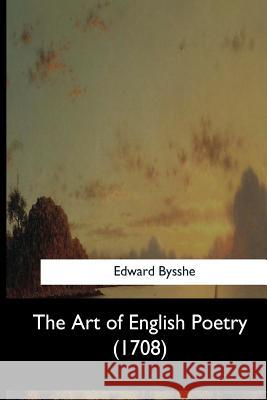The Art of English Poetry (1708) » książka
The Art of English Poetry (1708)
ISBN-13: 9781973858096 / Angielski / Miękka / 2017 / 70 str.
The Art of English Poetry (1708)
ISBN-13: 9781973858096 / Angielski / Miękka / 2017 / 70 str.
(netto: 34,26 VAT: 5%)
Najniższa cena z 30 dni: 35,48
ok. 16-18 dni roboczych.
Darmowa dostawa!
The Art of English Poetry (1702) may be roughly described as an English version of the Gradus ad Parnassum. At least that is the tradition to which it belongs. Its immediate predecessor was the pleasant English Parnassus: Or, a Helpe to English Poesie (1657) compiled by a Middlesex schoolmaster named Joshua Poole, and this work was avowedly modeled on Ravisius Textor's Epitheta and the Thesaurus Poeticus of Joannes Buchler. But whereas the English Parnassus was designed for the schoolroom, the Art of English Poetry was designed for the world of polite letters, and so may be called the first example in English of the handbook for the serious poet. In its original form the work was an octavo of nearly four hundred pages divided into three parts: "Rules For making English Verse," a rhyming dictionary, and a poetical commonplace book containing all the "Most Natural, Agreeable, and Noble Thoughts" of the English poets digested alphabetically by their subject. Only the first part is reproduced here, but it seems desirable to say something about the book as a whole. 1] It is one of those works which is scorned by all, and used by all who scorn it. In the sixty years after its publication it went through nine editions, and though Charles Gildon thought it "a book too scandalously mean to name," he was constrained to admit that it had "spread, by many editions, thro' all England" and had "carried off so many Impressions, as have made it with the ignorant, the Standard of Writing." 2] Not only with the ignorant. Pope knew and used the work, and likewise Richardson, Fielding, Isaac Watts, Johnson, Goldsmith, Walpole, Blake, Sir Walter Scott, Bulwer-Lytton, and many others. Indeed, it would be safe to say that there was hardly a literary man in the eighteenth century who was not familiar with it. If he used a rhyming dictionary, he used that in Bysshe, at least until 1775, when it was superseded by John Walker's Dictionary of the English Language. And if he used a poetical commonplace book, he used either Bysshe or one of the five other works which were produced in imitation of Bysshe. "Quoi qu'ils en disent," said the Abbe du Bos of a similar work in French, "ils ont tous ce livre dans leur arriere cabinet."
Zawartość książki może nie spełniać oczekiwań – reklamacje nie obejmują treści, która mogła nie być redakcyjnie ani merytorycznie opracowana.











